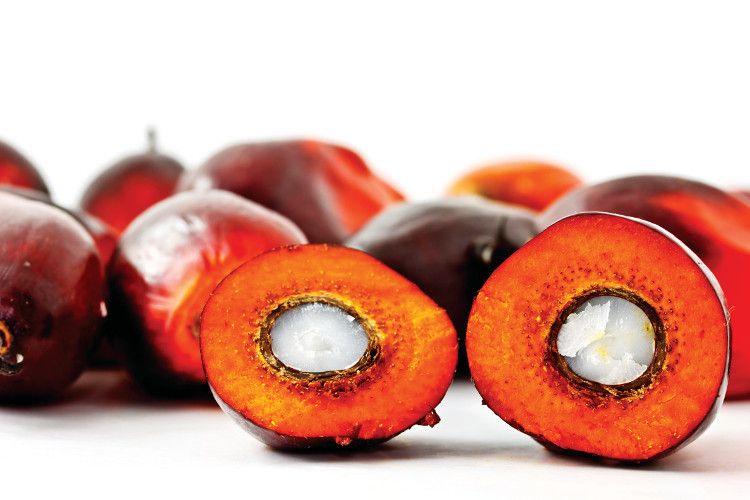Palm oil’s continued march toward sustainability
The palm oil supply chain is a topic of concern for many consumers, but companies like Cargill are working hard to develop a transparent and sustainable supply chain that reduced the crop's environmental and social impact.
Photo © iStockphoto.com/nui7711

Palm oil is an important commodity in a huge market that spans food and nutraceutical applications, but it is also controversial. Environmental concerns of deforestation and social concerns of human rights abuses in harvesting the crop have turned off consumers from the product, and encouraged suppliers to change the way they do business by closely monitoring the supply chain and employing higher standards that protect the environment and laborers. Cargill (Wayzata, MN), for example, has been working toward sustainability for 14 years, joining the Roundtable on Sustainable Palm Oil (RSPO) in 2004. The company’s consistent progress provides an example for how the palm oil industry can operate and provides hope for a sustainable future.
“In 2009, Cargill’s PT Hindoli oil palm plantation in South Sumatra was among the first plantations in Indonesia to be RSPO-certified,” Marie Lavialle-Piot, sustainability program manager, Global Edible Oil Solutions for Cargill, tells Nutritional Outlook. “In 2010, we were the first company in the world to certify 8,800 independent smallholders against RSPO Principles and Criteria.”
In 2014, Cargill adopted the No Deforestation, No Peat, No Exploitation (NDPE) policy, committing to principles of no deforestation of high carbon stock (HSC), no development of peat, and no exploitation of people. “It aims to go beyond the current RSPO Principles and Criteria by adopting the HCS approach and stricter requirements on peat and exploitation across our entire supply chain, including third-party suppliers,” explains Lavialle-Piot.
In its 2017 Palm Oil Annual Report published in May 2018, Cargill explains that it is committed to a 100% traceable, transparent, and sustainable palm oil supply chain by the year 2020, highlighting progress in four areas: traceability, supplier engagement, sustainable plantations, and smallholder programs. For example, Cargill reports that currently, 96% of its supply is traceable to mills and 55% is traceable to plantations, and that the number of high-risk mills across Malaysia, Indonesia, and Latin America have gone from 30 in 2015 to five in 2017.
Over these 14 years and the significant progress made, Cargill has learned a great deal about how to effectively create and enforce change. “We started this process by mapping the mills in our supply chain and setting up meaningful and innovative supplier-engagement programs across geographies,” says Lavialle-Piot. “However, with experience, we’ve learned there are common issues that can be more successfully addressed at a landscape level, across commodities and with the support of the local authorities. For example, a mill in our supply chain can have an action plan to protect the forest in its surrounding; however, if there are 10 other mills around this forest and none of them have a plan, then the forest is still not protected.”
Persistent progress remains important as issues in the supply chain continue to spring up and cast doubt on palm oil. Recently, both Nestlé and PepsiCo severed ties with one of Indonesia’s largest palm oil companies, IndoFood, with PepsiCo explicitly citing ongoing human rights abuses by the company. PepsiCo initially suspended sourcing directly from IndoFood’s subsidiary IndoAgri, following complaints of labor abuses surfacing from plantations. It’s important to note that PepsiCo actively monitors its palm oil supply chain and has a traceability verification program, which Cargill has participated in.
“The palm supply chain is extremely complex. Most companies buy palm oil on the market (as opposed to directly from the mills), which makes engagement with the mills much more challenging. When a supplier is alleged to have committed abuses, we have to investigate through the supply chain,” explains Lavialle-Piot. “It is important that the industry aligns around a common grievance process to improve engagement with supplier groups alleged of breaching NDPE policy commitments. Cargill has a strong grievance mechanism in place, and we report publicly on our engagement with our direct and indirect suppliers. We believe banning producers who fail to immediately meet our high standards undermines the potential for palm oil to be produced responsibly. We have suspended suppliers only as a last resort when they fail to demonstrate a willingness to improve. As a result, we successfully removed Indofood from our supply chain in April 2018.”
Working actively towards sustainability, being transparent, and taking public steps to correct inadequacies is important, particularly now as consumers are more aware than ever of environmental and social issues, and they employ social media to spread awareness. “[Young consumers] are increasingly becoming conscientious stewards of the world’s resources. They expect companies to act responsibly, protect the environment, and recognize workers’ rights,” says Lavialle-Piot. “Social media plays an important role in relaying the debate and can have both positive and negative effects. For example, false news circulates faster than ever and can damage a company’s reputation seemingly overnight. At the same time, social media is helping to drive and increase transparency in the palm oil supply chain.”
HHS announces restructuring plans to consolidate divisions and downsize workforce
Published: March 27th 2025 | Updated: March 27th 2025According to the announcement, the restructuring will save taxpayers $1.8 billion per year by reducing the workforce by 10,000 full-time employees and consolidating the department’s 28 divisions into 15 new divisions.










